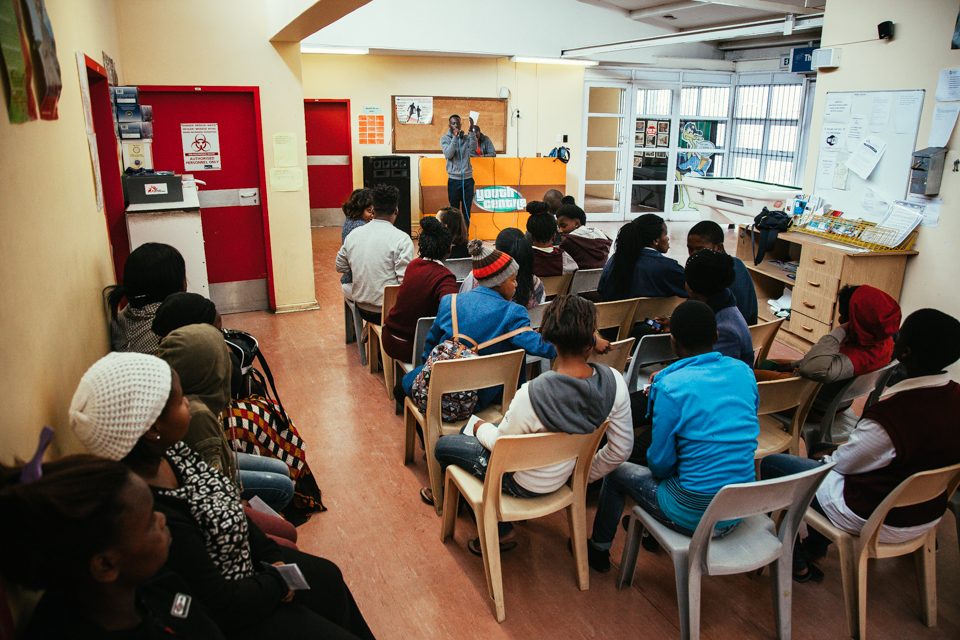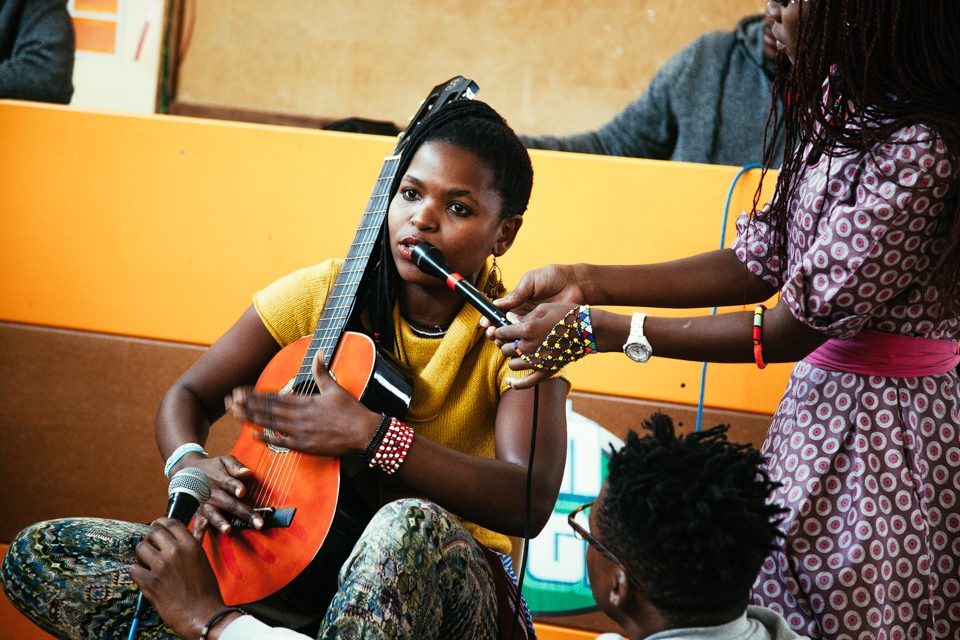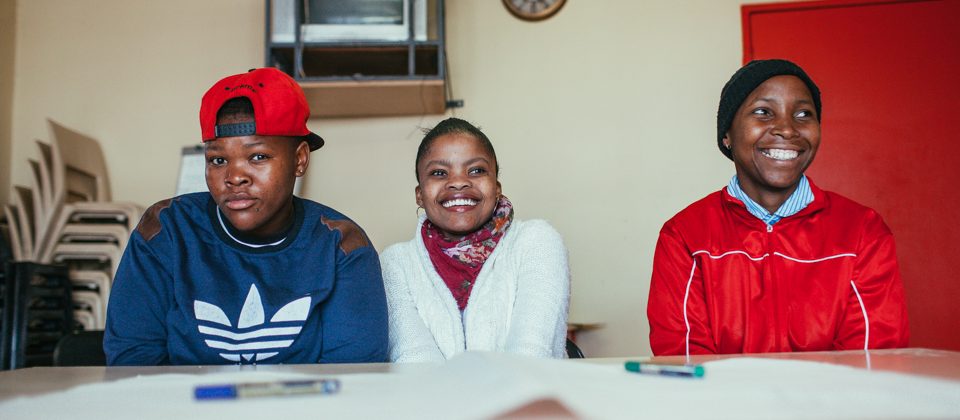HIV/LGBTIQ dialogue with the Future Positive youth reporters from Children’s Radio
The Children’s Radio Foundation uses radio training and broadcast to create opportunities for youth dialogue, community building and leadership.
Future Positive (FP) youth reporters host monthly outreach events around a relevant theme to which CBOs and community members are invited. These events transform the clinic into a lively space filled with youth from the community participating in a variety of activities and performances and dialogue around HIV/LGBTIQ issues. The event in May was a celebration of “Africa Day” and FP youth reporters invited poets and performers to reflect on the recent xenophobic attacks around the country while hosts engaged the audience to share what they believed “made them an African”.
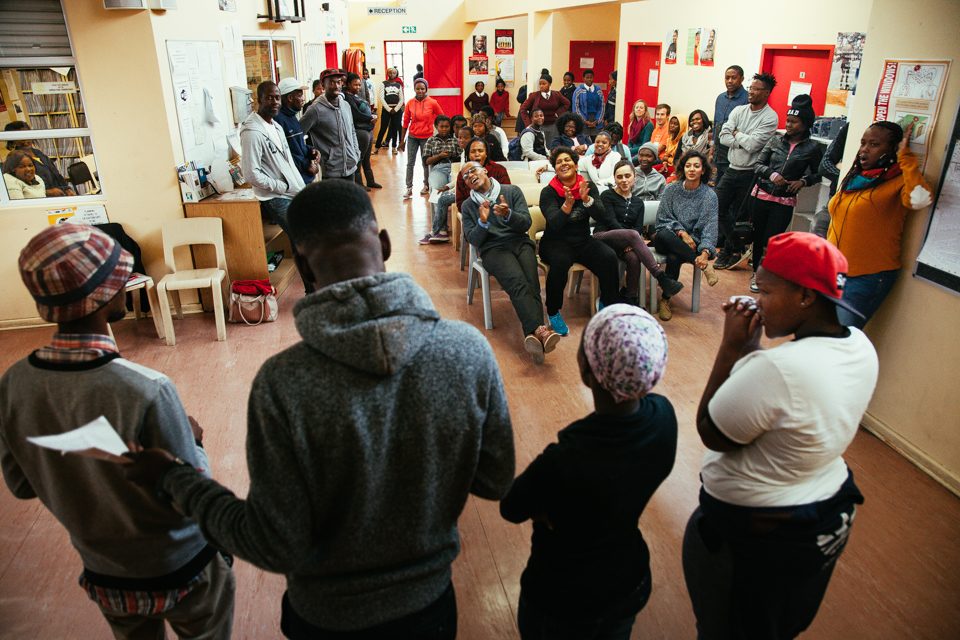
The idea for Future Positive was developed in 2012, in conversation with staff at Médecins Sans Frontières (MSF) in Cape Town, South Africa and Civil Society Organisations (CSOs) working in the Khayelitsha community, where an estimated 28% of the community is infected with HIV.
While anti-retroviral therapy (ART) is available, it has proven difficult to get young people to access treatment and services. In 2010, up to 70% of the eligible youth in Khayelitsha’s clinics were “lost to care” before starting ART, and 60% of these losses occurred immediately after testing HIV positive. Oftentimes, youth only return to the clinic when they are gravely ill, making treatment exceedingly difficult.
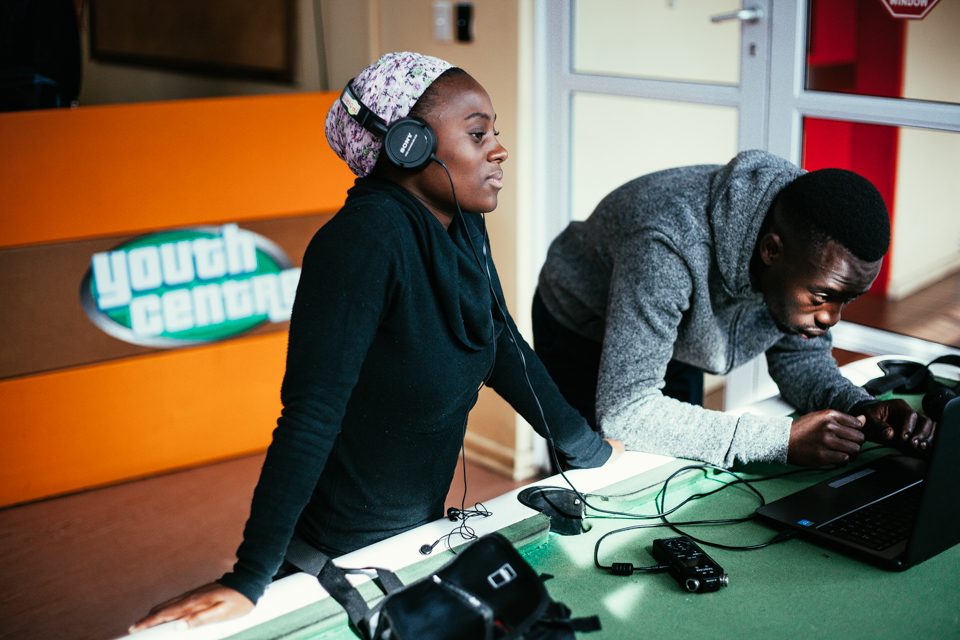
In conversation with project partners, community leaders, and HIV positive youth, it was revealed that stigma presented the most significant challenge to youth in accepting and disclosing their HIV status, which made them less eager to access clinic services.
And further more it was revealed that HIV-positive LGBTI youth were extremely marginalized within Khayelitsha, and that they needed to be prioritized as a central initiative partner. Respondents noted that LGBTI youth were often ostracized from their families, experienced ongoing physical violence and verbal abuse, were regularly harassed by the police, and felt silenced within their community.
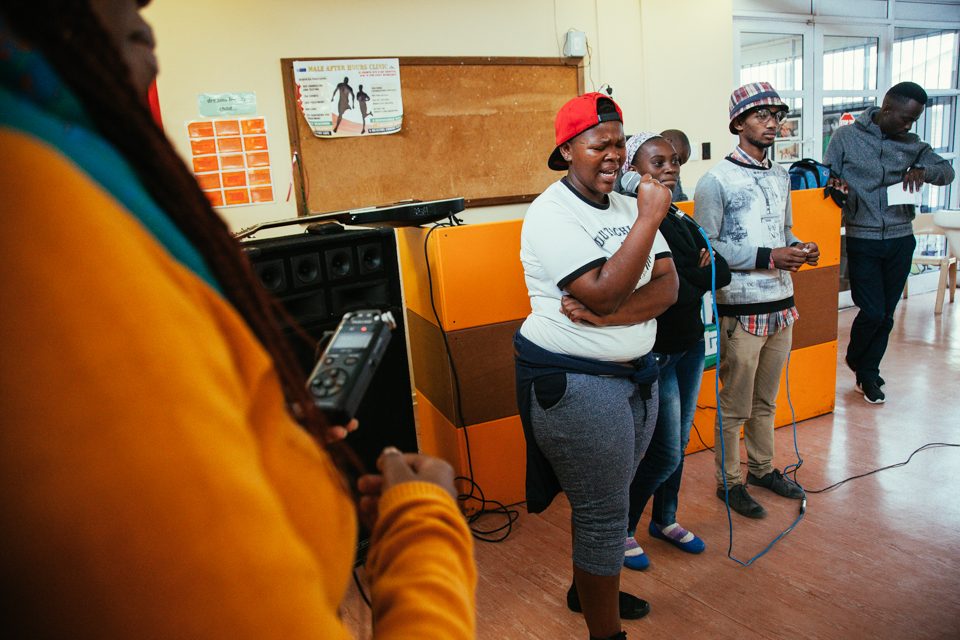
Overall, while HIV messaging is omnipresent, HIV positive respondent argue that there are few platforms for them to speak openly about experiences of living with HIV in ways that reflect the realities and challenges they face.
PROJECT ACTIVITIES
- Future Positive uses radio training and broadcast to foster dialogue within the wider community about experiences of HIV/AIDS. By training facilitators and youth at clinics and community centres to use radio as a tool for dialogue, the initiative offers marketable media skills while creating spaces for youth to speak. Since September 2012, 36 CSO-based facilitators and 50 youth reporters have been trained.
- Through attending weekly clinic-based radio workshops, the initiative also promotes access to health services and support groups, while facilitating spaces for considered youth interaction, counselling, and active citizenship.
- Youth reporters host bi-monthly talk shows on community radio station Radio Zibonele and facilitate dialogue events in the community that involve youth, decision makers, and policy stakeholders. Radio Zibonele reaches close to 300 000 residents of Khayelitsha, and is poised to play an important role in shifting perceptions, interventions, and policy around HIV/AIDS.
- Youth reporters host monthly outreach events around a relevant theme to which CBOs and community members are invited. These events transform the clinic into a lively space filled with youth from the community participating in a variety of activities and performances and dialogue around HIV/LGBTIQ issues.
- 12 LGBTIQ youth reporters have completed training in March 2014 and are in the process of developing a 10 part audio drama series which will explore the experiences of LGBTIQ youth.
- As part of the building of a network of Khayelitsha-based CSOs, Future Positive has engaged into a partnerships with Health 4 Men – an NGO that provides HIV/AIDS related services to men having sex with men (MSM) – and Free Gender – a black lesbian organization based in Khayelitsha, with the aim of using radio and storytelling techniques to reduce stigma against HIV positive and LGBTI youth.
